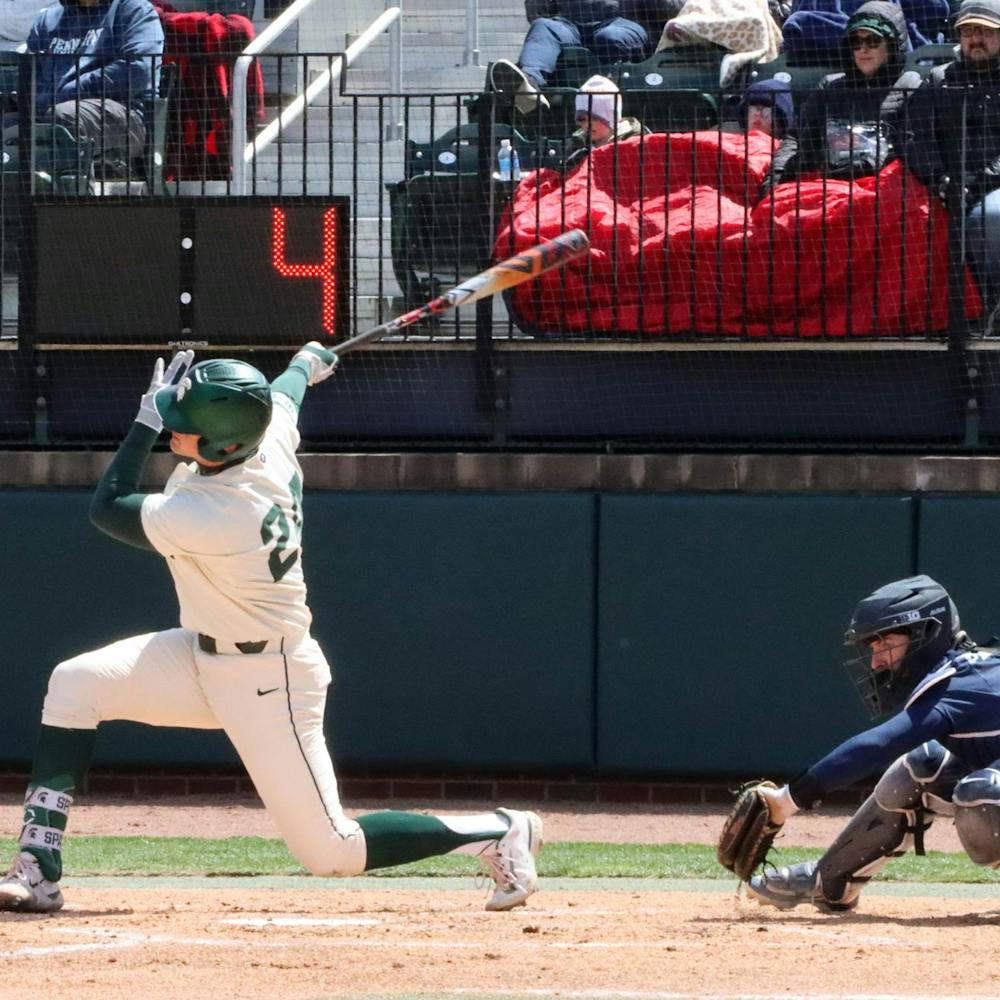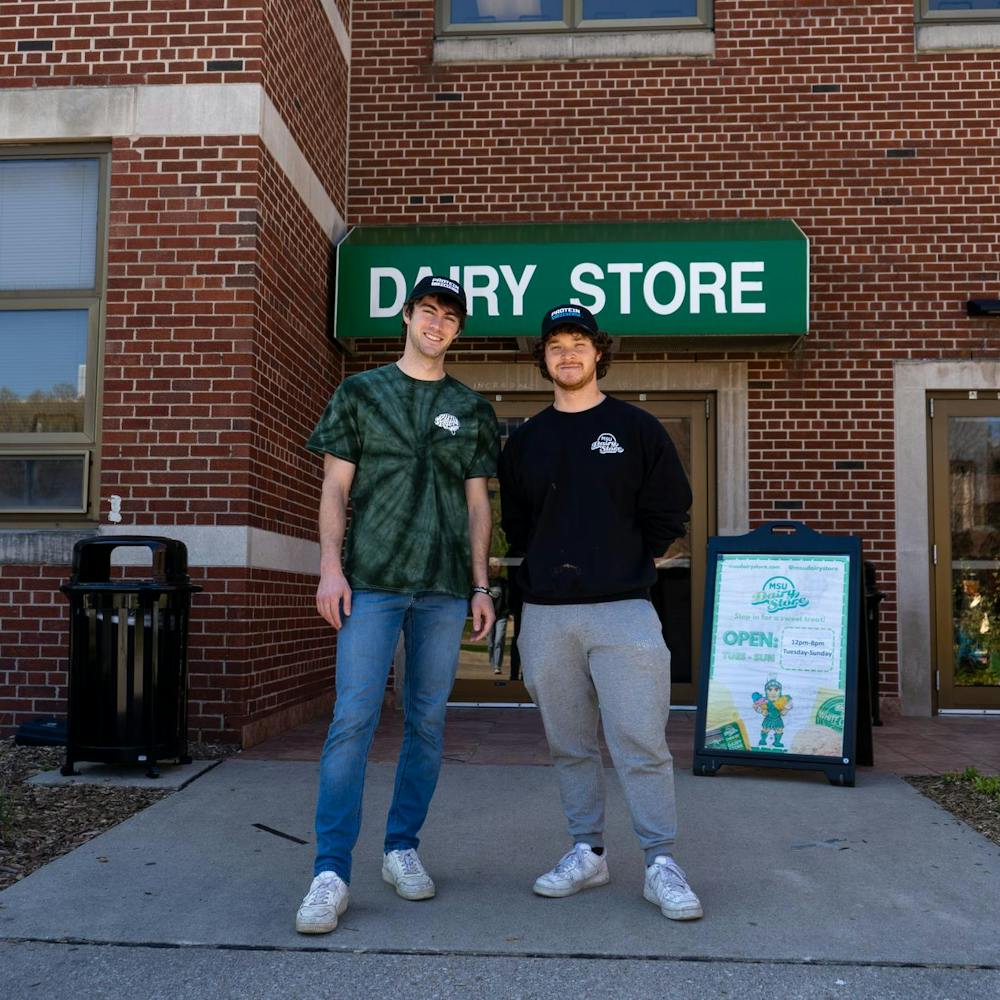Come and get it. Southern Culture on the Skids will be bringing its pink-flamingoes-and-fried-chicken brand of psychobilly to Mac's Bar, 2700 E. Michigan Ave. in Lansing, on Sunday.
The State News talked to guitarist/vocalist Rick Miller about the band's recently released live album, "Doublewide and Live," the allure of the Southern mythology and what keeps the band going more than 20 years since its formation.
State News: What can one expect from a Southern Culture on the Skids live show?
Rick Miller: You can expect, at the very least, to have a good time; at the very best, meet your fiancé.
"Doublewide and Live" gives a pretty good impression of what to expect. Was that the intention of the album?
Oh, of course. You know, why do a live album if you can't convey the kind of excitement that it can generate live, you know what I mean? Studio albums are one thing, and that's a whole kind of different set of priorities to me. And the live thing is kind of wide open and see what you can come up with. Live shows are like chemistry experiments, you know what I mean? Like you get loud music, beer, people — mix it all together and every night there's a different kind of thing.
Have you ever tried to carry that "chemistry experiment" over into the studio?
Well, I don't know if it's possible. I mean I guess it is, but you know the thing about the live shows is that you've been playing the material … in the studio you worry about overdubs, melodies, singing and things like that. Live, it takes on a whole different kind of thing because, first off, it's just the three of us (Miller, bassist/vocalist Mary Huff and drummer Dave Hartman), so we're kind of limited as far as, you know, no real overdubs, or thinking about, "Oh, you know, is this working with this, you know, blah, blah, blah." You just kind of get up there and you let her fly, and I think that that's kind of exhilarating in its own way. They're two different things to me. I think to try to get that in the studio would be tough too because you're trying to come up with new songs; when you're playing them live you've already been playing them or already recorded them, most likely. So they're kind of the next generation. You're more comfortable with them, you're not learning them as you play them, so you concentrate more on performance to the people and entertaining. Probably, it's not quite as musical, but it's definitely more exciting.
How is SCOTS country-fried style received in the northern states?
Aw man, well I mean it's basically rock 'n' roll, so I think the music translates wherever it goes. And there's kind of enough of mythology about the South that kind of builds up everywhere that you kind of play off that stuff. I think people get it everywhere.
You're often cited as one of the unsung heroes of surf and rockabilly guitar. What inspires your playing?
Well, when I first started, my biggest influences were probably Creedence Clearwater Revival, Dick Dale, Link Wray and The Ventures. That's just what I like. I think reverb and tremolo are all you need for most, and luckily it comes on a Fender amp, you know? I just like playing guitar. I got my first guitar as a kid at a dime store, in Henderson, N.C. My parents tried to get me lessons, but I quit after like the second one. I ended up going down there and looking like I was going into my lessons, but I'd sneak down to the local smoke shop, they called it, and look at dirty magazines.
What is it about the "mythology of the South" and the "white-trash" lifestyle?
Well, I don't know if it's so much "white trash." I grew up with it. You can call it "white trash," but some of our songs are more character driven, like "Man That Wrestles the Bear," "King of the Mountain," things like that. They're fascinating characters, and there's towns full of them. You can see it in the literature, and you can see it in the music. And I think I'm just part of that whole tradition, you know? Not only that, but Southerners appreciate sort of the outsider perspective, I think, because they sort of feel that way themselves — it's kind of been built into us. Another thing too, I think a lot of Southern writers; I think they write about outsiders and weirdos, and I find a lot of characters like that, like "Man That Wrestles the Bear." That song is about a guy I actually worked with in a mobile home factory wrestled a bear every fall when this cheap fair came through town. They had a mangy bear, and if you could stay in the ring with him for a minute, you'd win 25 or 50 bucks, I can't remember which. And every year he'd get his ass kicked, of course — the bear was huge. But the next day he'd say, "I've got it next year, I've got that bear's number, I was checking it out, next year I've got him." And I thought, wow, that says a lot about human nature.
How do you respond to people who say SCOTS is simply a novelty act?
Well, obviously they haven't listened to us. We've been around for 20-some years. Novelties are only supposed to last for a short period of time (laughs). I think that they just don't listen to our records.
How do you keep things fresh being around for so long?
Well, it's fun; music is fun. I think if you're into it for the right reasons that it continues to be fun. It's a great job, I love doing it, and as longs as you can say that … you know, if you have fun on stage, then people are more than willing to follow you and have fun themselves. And I think that we have a fun live show. Rock 'n' roll especially should be a good time, and I think that's another thing that Southerners appreciate about music — that a lot of it is associated with good times. Rock 'n' roll's great because you can do everything. We've had everything from "The House of Bamboo," which is kind of a cocktail song, to straight-up ravers like "The Corn Rocket." A lot of varied interests in the band, so far as music goes.
Like what?
Well, just the other day, I was listening to the Holy Modal Rounders — a psychedelic jug band from the '60s. After that, I was listening to Black Rebel Motorcycle Club's record, and then I was listening to a Mickey Baker record — which is a guitar player from the '50s, and a Howard Roberts record— who's a jazz guitar player from the '60s. So, a lot of varied interests, and I think that's what keeps music fresh, too, is that we keep finding new music that turns us on. Music's fun (laughs).
That's definitely something I noticed listening to "Doublewide and Live" — it's just a really fun record.
That's basically what it is. But you know, like I say, when you ask me what keeps us going, it's kind of a tough question because it just seems so natural to do it, you know?





